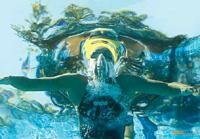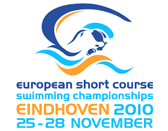
The return of swimming
The Hungarian capital has now hosted the European Championships four times since it got the show underway with a men?s only event in 1926 (ladies gracing the water the following year). None are around to truly say which Budapest was best but after 12 days of action on Margaret Island and out at Lake Balaton what we can declare with hand on heart is that the saviours who answered LEN?s S.O.S in a time of need and financial constraint are owed a debt of thanks by the Old Continent.
Here was a championship that did not have the kind of big budget now associated with world championships. Yet the 30th championship in history, with athletes from 43 nations competing for glory, suffered not a jot. Indeed, with a nod to seven days of fabulous racing in the pool alone, LEN?s showcase was the first celebration in the world of the return of swimming beyond the shadow of suits now banned. The talk was of athletes, athleticism, technique, torsos and tales fit to feed the lore of great sport.
Taking all sports into account ? swimming, diving, synchro and open water, Russia took the crown, on 13 gold, 7 silver and 8 bronze medals, while France, for the first time in history, was king (its eight gold medals all won by men) of the race pool, Germany ruled the boards and Italy the lake.
In swimming, the return to textile suits and fair play on January 1 this year dictated that there would be no repeat of the 6 world and 18 European records from Eindhoven 2008 ? even before the racing began. Indeed, no global standards were felled but Camille Lacourt came closest: 24.07sec in the 50m backstroke left him 0.03sec shy, by which time he had already pulled something special out of the bag for Gaul and Europe when he took down a shiny continental standard in 52.11sec over 100m backstroke to send shock waves around the world of swimming.
The Marseille Missile?s blast was one of 31 championship records, 16 set by men, while Europeans ended their big event with 16 places at the top of the world rankings across all 34 solo events. Gaul?s gladiators gate-crashed their way to 8 titles for the men?s crown, while Britain?s belles kept rivals at bay six times for the women?s crown. France, with 21 medals, won the team trophy for the first time a league ahead of any result it has ever achieved before. Russia, with seven titles, was runner-up, while Britain, in third and with 18 medals overall, celebrated its best result ever.
Lacourt was the most successful male swimmer, with three gold medals (50m and 100m backstroke, 4x100m medley relay), a European mark and two championship records to his name. Topping the women was Hungarian Katinka Hosszu for the hosts, her three gold medals (200m butterfly, 200m individual medley, 4x200m freestyle relay) joined by a silver medal in the 400m medley behind an historic first medley victory for Britain, courtesy of Hannah Miley.
If Britain?s Francesca Halsall became the most successful British swimmer in the history of the championships (with two golds among five medals), then Sweden?s Therese Alshammar?s 2 gold, a silver and 2 bronzes took her international treasury of to 67 medals (14 golds among them), including relays, at Olympic Games, World and European Championships. And the winner of two silver medals at the 2000 Olympic Games is not done yet: 33 in the month of the Budapest battle, she is now aiming for a fifth Olympic campaign, in London 2012.
Europe closed its summer 2010 account just before the rest of the world took to its blocks at the Pan Pacific Championships in California, though Britain, which raced either unrested or only partially rested in Budapest, returned home to prepare for its ?priority? event of the year, the Commonwealth Games in October. The Asian Games will concluded the big long-course events of 2010.
In diving, Germany ruled the boards with eight medals, among them five gold: an outstanding achievement a year after the drought of Rome, when Germany failed to visit the podium. As was the case in the pool, when the medley relays saw Russian women grant Britain gold when they were disqualified for a faulty takeover before the men of Gaul keep Russia at bay, the climax of the diving decided the team trophy.
In the very last competition, the men?s 10m platform, from which defending champion Thomas Daley had withdrawn after suffering a tricep injury, Germany edged a point ahead of Russia when Sascha Klein and Patrick Hausding took gold and silver. For Hausding that also brough the title of best male diver of the championships and the first ever to achieve an incredible feat: he won a medal in all five events, two gold topping three silvers. Previous best was seen in Helsinki 2000, when Russian living legend and president of his national diving federation, Dmitry ?The Man? Sautin, took four medals, three gold and a silver.
Worth noting that, as is the case in the race pool, the divers of today have a lot more to aim at than those of yesteryear in keeping with a growing competition schedule. Diving events provided one of the biggest controversies of the championships as athletes and coaches complained of the poor quality of the lighting for evening events.
In synchronised swimming, Russia, the sport?s dominant force not only here in Europe but across the world, sank all before her. With Spain?s Gemma Mengual, the star of Eindhoven 2008 after a four-gold success, Russian Natalia Ischenko worked hard but was untroubled by rivals on her way to matching the achievement of title-winning performances in solo, duet, team, and free combination. If she was consistency personified, then so too was the result in her wake: four silvers for Spain, four bronzes for Ukraine, the most improved nation in the synchro pool in Budapest. With those four crowns, Ischenko won more gold than any other athlete at the championships across all four disciplines.
The championships began in a world beyond Budapest, out at Lake Balaton, where Italy extended its rule of the waves in Europe. The Azzuri took home no fewer than eight medals, among them two titles, to Luca Ferretti in the 5km for men and Valerio Cleri in the 25km for men, their treasury helping to deliver the Team Trophy by a wide margin.
If Italy was the team of the lake, the swimmer who caught the eye was Olympic bronze medallist Thomas Lurz (GER), who in the marathon event claimed gold to extend the most phenomenal of open water success stories, his personal trophy cupboard now stacked with more international medals than anyone has ever won beyond the race pool. There were no double gold winners in open water this time round, with Greece claiming the mixed team prize over Italy (as a time trials over 5km), while among women the result that no-one expected was the victory over 25km of Ukraine?s Olga Beresnyeva in her debut race over the distance.
As Budapest prepared to wave goodbye for a fourth time, LEN was unable for the first time in many a long year, to celebrate the handing over of the flag to the next host. The 2012 event and the timing of that in Olympic year are yet to be decided, potential hosts thin on the ground as cities suffer cuts to budgets, both self-imposed and mandated by national Governments in the wake of the global financial crisis. Provisional dates of May 16 to 27 (around the time that LEN will hold its 2012 Congress in Troia, near Lisbon, Portugal) have been set in a year that see London host the Olympic Games in July, while provisional dates for the 2014 championships have been set at August 6 to 17.
The LEN Bureau was, however, able to reveal that the 2011 European Open Water Swimming Championships has been awarded to the Israel Swimming Association and the City of Eilat on the Red Sea. Make a date with your diary: September 5th to 11th. That event will also represent the first European Championships in Open Water Swimming since the LEN Bureau announced independent continental championships were to be held in odd years for open water swimmers. Divers already have their own event.
Potential hosts for 2012 and 2014 will doubtless wish to know ?what?s in it for us?. Budapest provides the answer to some extent. The bi-annual summer showcase for aquatic sports was not merely a success because great athletes, their coaches by their sides, stepped up and gave it their best but because everyone did, from those in the limelight to the unsung heroes who work in the shadows to make sure that information flows and the stage is polished and the engine well-oiled. The helpfulness and friendliness of volunteers on Margaret island was exceptional, the value of their contribution impossible to overstate.
But the bottom line of Budapest?s success is as stark as the black line that swimmer?s follow year in and year out in pursuit of excellence. A colleague reminded me recently of a FINA official, in pursuit of a better lot for aquatic sports, who said ?we?re fed up with eating nuts and sipping cheap wine ... we want caviar and champagne?. His heart was in the right place but the wallets of potential bidders for events may not stretch to all of that for a while. What Budapest 2010 proved is what aquatic sports have known since Budapest 1926: you don?t need the trappings of wealth to put on a spectacle that will have them on their feet and cheering for more. The athletes will do that for you.
By Craig Lord
The Times, Great Britain











